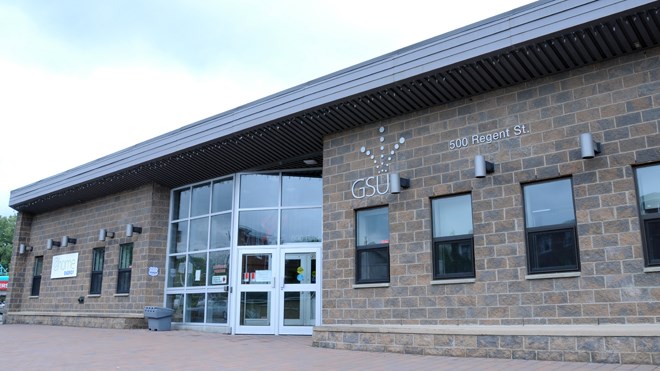A battle is shaping up over whether Greater Sudbury Utilities can – or should – be paying a share of its profits to the city.
As reported by Sudbury.com on Tuesday, a staff report headed to city council June 25 concludes the municipally owned utility should be paying a yearly dividend of roughly $1.75 million.
After analyzing documents the GSU presented at its annual general meeting June 4, city finance staff did their own analysis. In particular, they rewrote elements of the dividend policy that would require the utility to pay a certain percentage of their net income to the city, after capital and other needs are factored in.
But members of the GSU board — including city councillors Mark Signoretti, Geoff McCausland and René Lapierre — said in an interview Tuesday they are very unhappy with the staff analysis.
Paying an annual dividend would lead to rate increases for consumers, Signoretti said, who slammed the staff report in no uncertain terms.
“Our city staff have put together a report that doesn't provide all the information,” he said. “It's very one-sided, it's very biased and you can quote me on that.”
“I can see how you'd think that the city has never shared its profits because that is the way that this report is written,” McCausland added. “They made it look like we aren't getting anything.”
They say the report largely ignores issues that are critical to the GSU's argument against automatically paying the city an annual dividend. The first is the way net income calculated.
Net income is not the same as net profit, they said. For example, the GSU just opened a new $3.85-million substation, and it's listed on their books as an asset and is included in calculating net income. In other words, a $3.85-million asset is not the same as having $3.85 million in the bank, giving a misleading picture of profitability.
“It is net income because we put money in and it's there, but it's in infrastructure,” McCausland said. “So even though it appears as net income, it's not really something that can be paid out.”
Another issue is that net income doesn't include money needed for capital projects for such things as the five substations slated to be replaced between now and 2024.
Since city council began looking into why they don't receive a dividend — when, it should be noted, many other municipalities who own utilities receive one each year — the GSU has argued Greater Sudbury receives the equivalent of a dividend in two ways.
The first is the $3.8 million the city receives each year from interest on a loan to the GSU, paid out at an interest rate of 7.25 per cent. While there was no actual loan from the city, it's an arrangement all municipally owned utilities have to ensure money goes to the shareholder.
When discounts for services to the city are included, the GSU says it provided the city the equivalent to $5.52 million in 2018. McCausland said to expect a dividend each year on top of that is excessive.
“[It's] like double-dipping,” he said.
When asked whether any other municipal utilities pay dividends while still making the annual interest payment and offering discounts, McCausland said they weren't sure.
“It is very difficult to find out because it's not mandated,” he said. “The only thing that is obvious is the dividend and the loan.”
However, according to a consultant's report, the GSU returned more cash to the city in 2017 on a per customer basis than 26 of Ontario's 37 municipally owned power companies.
The councillors were extremely upset that the staff report headed to city council June 25 only showed the 10 that paid more back to their owner than the GSU in 2017.
“They present nine of the 10 above us, and that's it,” McCausland said. “You want to talk about a skewed report. I was shocked to see that. Not a single one (that pays less than the GSU) was included.”
And the report included North Bay as the highest, even though the 2017 return was much higher than normal, and was the exception, not the rule.
Signoretti said forcing the GSU to pay the dividend would make it harder for them to invest in the other businesses they own.
“We're reinvesting (profits) in not just our infrastructure, but in our affiliated businesses,” Signoretti said. “So by allowing us to do that, what it's going to do is it's going to allow those businesses to thrive and grow — and once they thrive and grow and are more profitable, that money in turn would flow back to the city.
“The success of those businesses is subsidizing the capital expenditures, which otherwise would be on the burden of the ratepayers.”
While the staff report recommends a dividend policy that takes into account capital needs and would be based on actual cash profits — and not assets such as substations — and so wouldn't force an increase in rates, Lapierre argued that is what would happen.
“One of two things has to happen at the GSU level for us to be able to pay the dividends,” he said. “Either we go get that money from ratepayers (through an increase in rates) to be able to pay that, or we don't fix our infrastructure,” he said.
The report and its recommendations will be debated at the June 25 meeting, which begins at 6 p.m. at Tom Davies Square.
